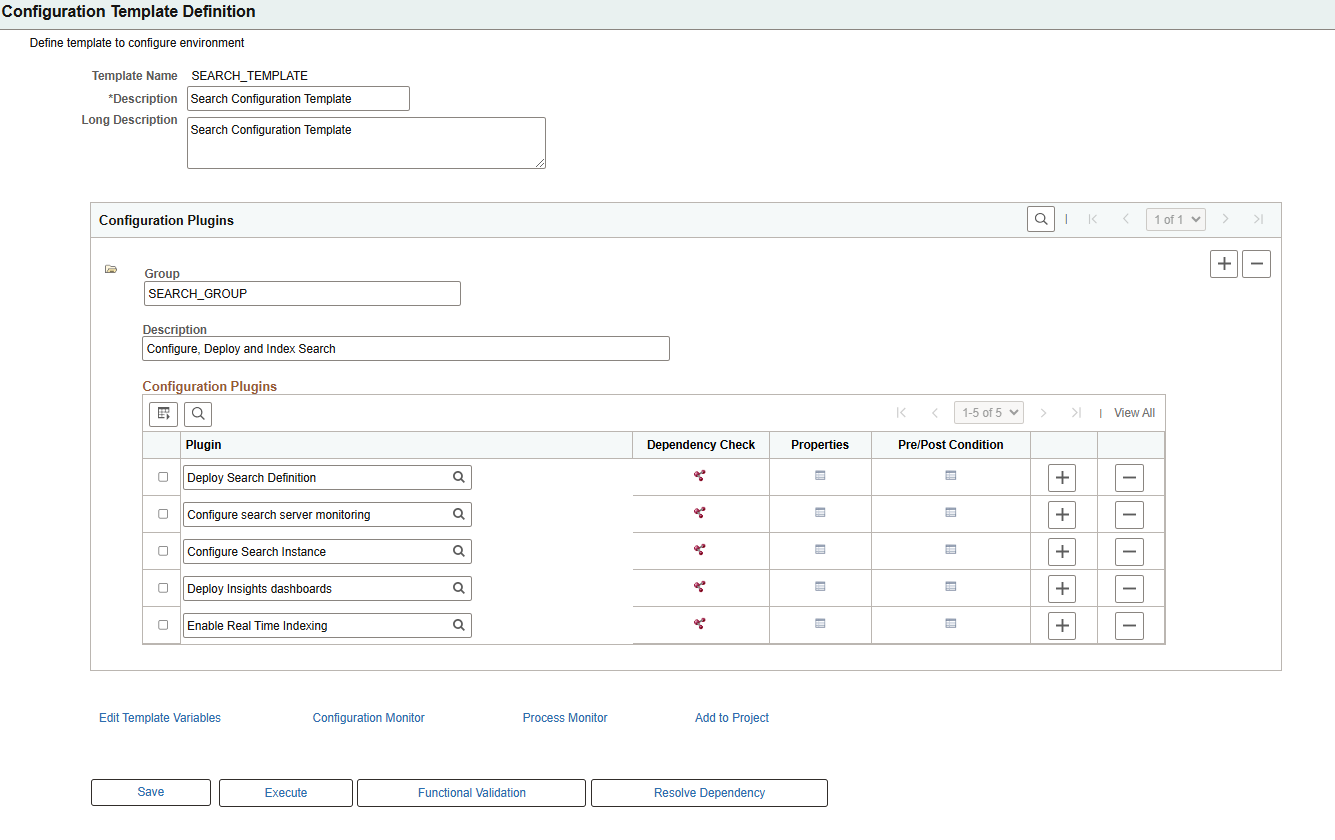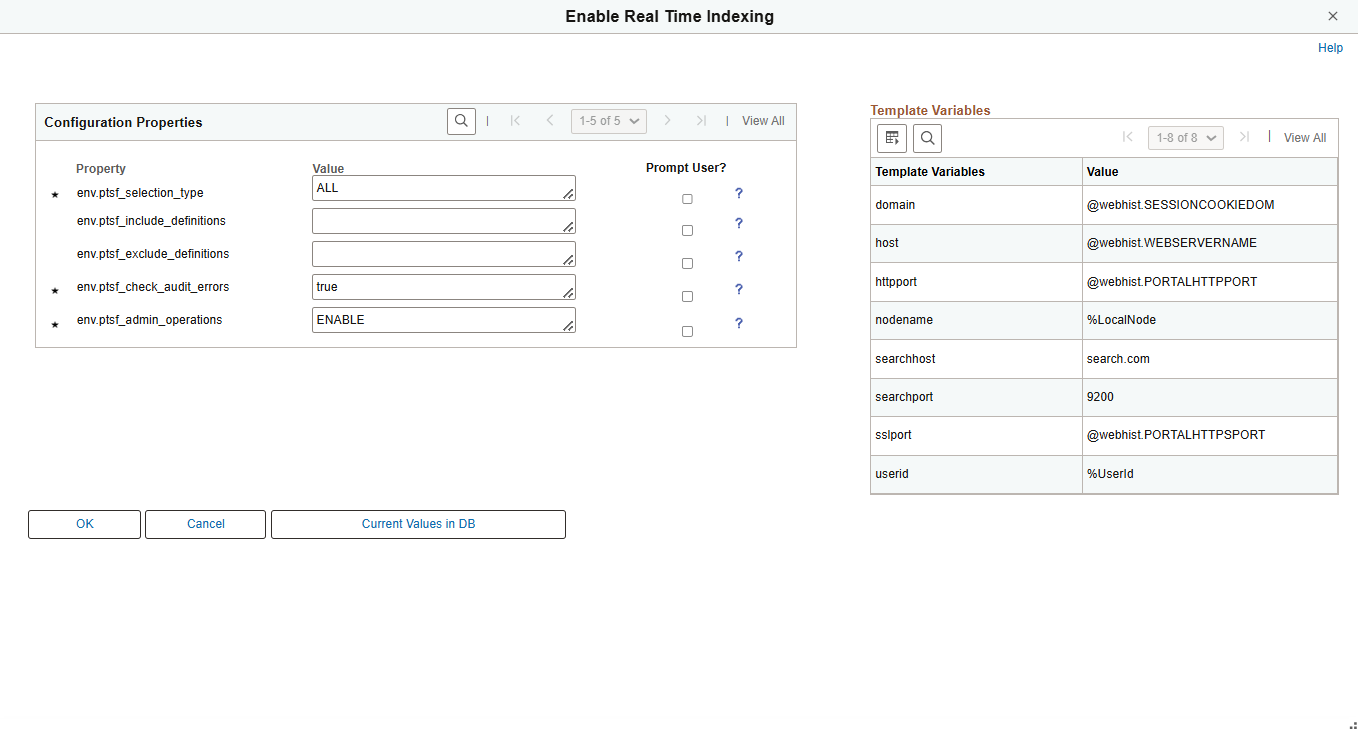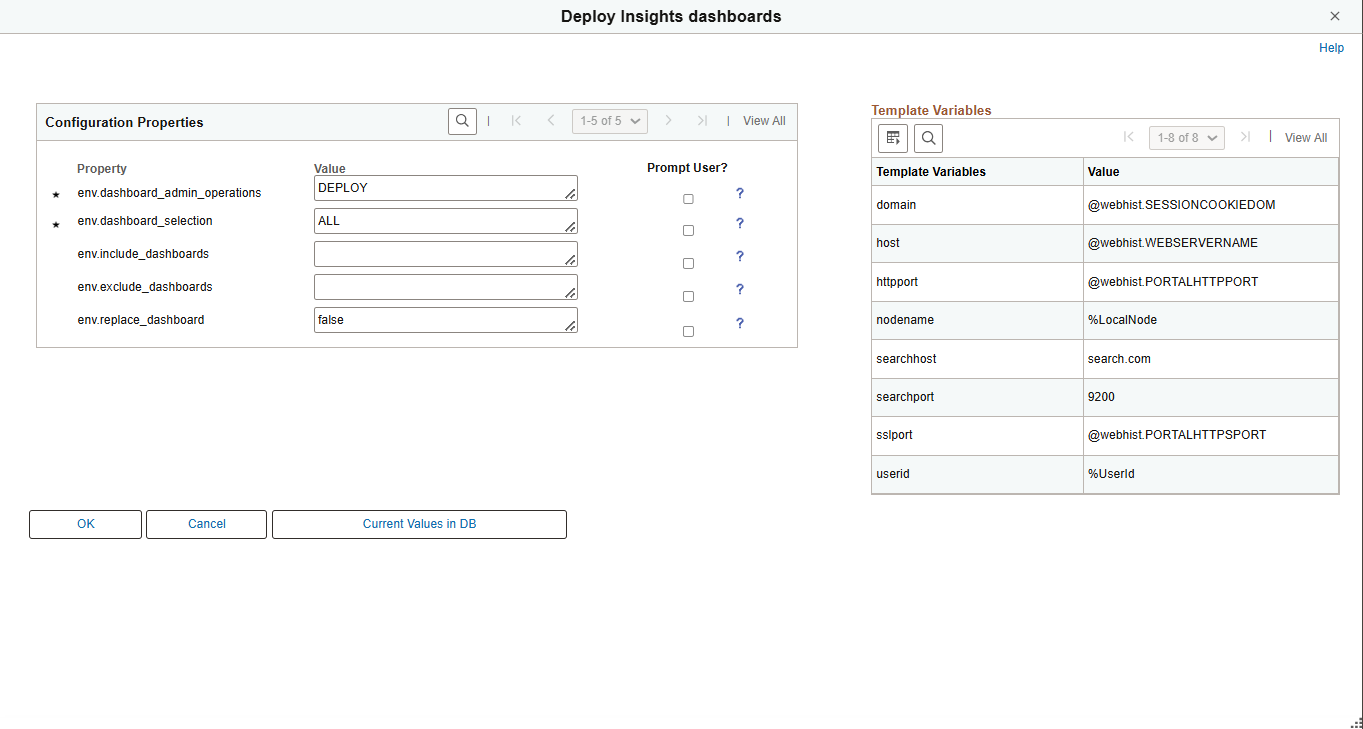Configuring Properties in Plug-ins for RTI and Insights Dashboard
This section describes the topics related to configuration of properties in plug-ins for enabling Real Time Indexing (RTI) and deploying the Insights Dashboard. PeopleSoft provides plug-ins for deployment of Real Time Indexing and Insights dashboard as part of the template for search (SEARCH_TEMPLATE). This is supported in Oracle, MSS and DB2 environments.
The Enable Real Time Indexing plug-in on Configuration Template Definition page enables RTI and runs trigger SQL scripts automatically for the configured Search Definitions.
Access the Configuration Template Definition page using the following navigation path:
This example illustrates the fields and controls on the Configuration Template Definition page.

To select the search definitions to be enabled or disabled, click Properties corresponding to the Enable Real Time Indexing plug-in. The Configuration Properties page appears, where you can configure the plug-in properties.
Note: This plug-in must be activated only on a need basis by an administrator with Automated Configuration Manager (ACM) access privileges. The PeopleTools upgrade process does not use ACM.
This example illustrates the fields and controls on the Configuration Properties page for Real Time Indexing. Definitions for the fields and controls appear following the example.

Field or Control |
Description |
|---|---|
env.ptsf_selection_type |
Select the type of search definition to be enabled. The available values are ALL (default) and LIST. When you select ALL, all the configured search definitions are enabled and available for Real Time Indexing. When you select LIST, you can include additional search definitions which do not have an existing configuration. SQL trigger scripts are run for all the enabled search definitions. |
|
env.ptsf_include_definitions |
Enter non-configured search definitions as a comma-separated list to enable or disable them based on the value defined in env.ptsf_admin_operations. |
|
env.ptsf_exclude_definitions |
Enter comma-separated list of search definitions to be selectively excluded from Enable/ Disable list, when the selection type is ALL. |
|
env.ptsf_check_audit_errors |
The default value is true. This field performs validation on the configurations after execution. If true check for access to query/connected query, or invalid objects and stop if errors found. |
|
env.ptsf_admin_operations |
The possible values are Enable (default) and Disable. Select Enable to enable RTI and run the trigger SQL scripts. Select Disable to disable RTI and drop the SQL triggers. |
The Deploy Insights Dashboard plug-in on Configuration Template Definition page enables you to deploy the insights dashboards automatically as per the defined configuration properties.
This example illustrates the fields and controls on the Configuration Properties page for Deploy Insights dashboards. Definitions for the fields and controls appear following the example.

|
Field or Control |
Description |
|---|---|
|
env.dashboard_admin_operations |
Select one of these valid values:
This is a mandatory property. |
|
env.dashboard_selection |
Select one of these valid values:
This is a mandatory property. |
|
env.include_dashboards |
Enter a comma-separated list of dashboard names to be deployed if you selected List in env.dashboard_selection field. |
|
env.exclude_dashboards |
Enter a comma-separated list of dashboard names to be excluded from deployment if you selected All in env.dashboard_selection field. |
|
env.replace_dashboards |
The default value is false, which ensures that the existing dashboards are not redeployed. If set to true, it redeploys and overwrites the existing dashboard. |